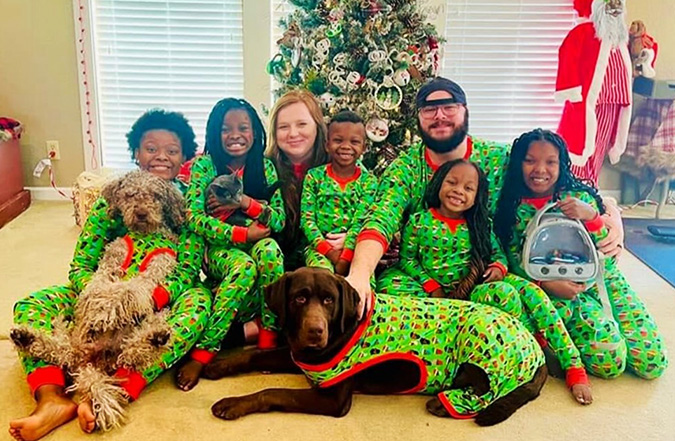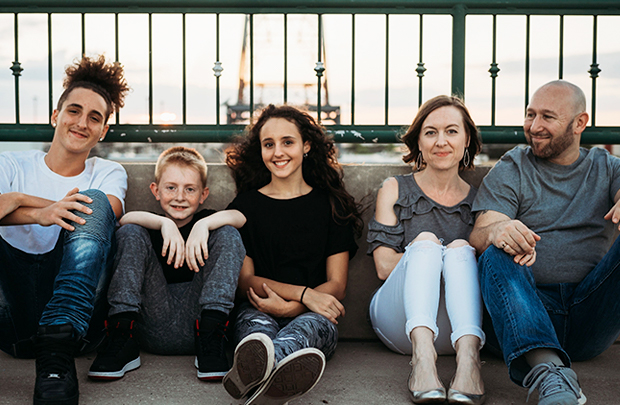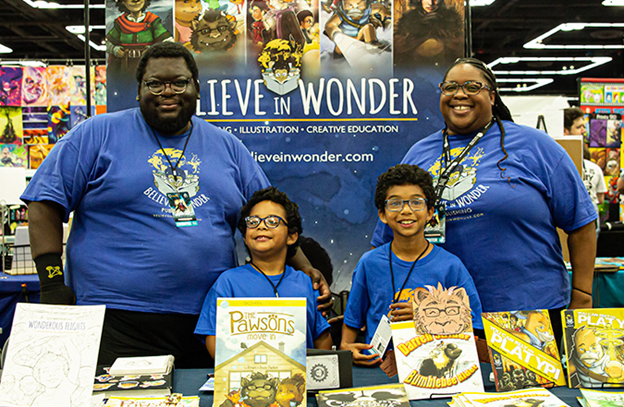
Catherine Monet entered the foster care system as a teenager and was adopted by her foster parents when she was 21.
Today, Catherine is 26. With the support of her family and mentors in the foster care and adoption community, Catherine has become a strong voice for children and teens in care. She frequently participates in youth panels at conferences and in webinars and is a member of the AdoptUSKids speakers bureau. In 2015, Catherine spoke with legislators on Capitol Hill about the rights of children in foster care.
We talked with Catherine about her experience and her advice for parents, social workers, and other youth in care.
You were adopted by your foster parents when you were 21, after spending eight years with them. What led to your adoption?
I’d been removed from my birth mom when I was 13, and for many years, my plan was reunification. Then at some point it switched to independent living. As far as I knew, adoption was never an option for me, a teenager getting close to aging out of care.
Everything changed when I went to my first child welfare conference. I met people who were adopted when they were older than me, and I learned more about permanency planning.
When I got home, I initiated a series of conversations. First, I told my mentor social worker that I was interested in adoption. Then we met with my foster parents. They were surprised that they could adopt me. The option hadn’t been presented to my parents either!
How did being adopted change things for you?
My parents always told me that I belonged, but being adopted made me feel like I belonged. I think if I hadn’t been adopted, I’d still be searching for a sense of permanency.
It also made me more comfortable talking about my experience in foster care. I’d always hated saying those words, because of the stigma. Too many people think that kids are in foster care because they’ve done something wrong. Which of course is not true. After I was adopted, I could say that I was in foster care before, but now I am adopted! I have a mom, I have a dad. I have a room that I can always come home to.
You’ve become a tremendous advocate for adopting teens. What do you hope to accomplish?
I think the biggest thing is that I want other kids to know the things I learned over time. I can only assume that there are kids like me, who think that they can’t be adopted if they’re older, or might not realize that they can go to college or succeed in other ways.
“My parents always told me that I belonged, but being adopted made me feel like I belonged.”
What is your primary message to teens in foster care?
Your voice is powerful—use it!
It’s not about the cards that were dealt to you, it’s about how you play them—and who’s at your table to help. I never would have been adopted if I hadn’t leaned on some amazing people who showed me I could do more—be more—than I’d been told when was I growing up.
What is your advice to social workers?
At one point in time when I was in the system, I didn’t trust my DSS social workers.
I think that one way to build this necessary trust is to invite youth to the table. Involve us in decision-making. Invite us to participate in roundtables. Give us opportunities to mentor kids in care and offer advice to foster parents.
I believe that it’s critical for systems to have input from people who have experienced foster care, not just studied it.
How about to people who are fostering or adopting?
- Be patient! That is the most important quality in a parent. Kids in care have experienced trauma. They’ll be standoffish. I was like that. Don’t push yourself on them or demand that they share details about their emotions and experiences. Because they probably won’t trust you with their feelings at first. You need to demonstrate that you are trustworthy.
- Be prepared for difficult conversations. When children do want to talk, be ready to hear what they have to say and help them work through difficult emotions.
- Be flexible. What worked with your birth kids won’t work with foster kids. You will need a different approach to understanding their feelings, their emotions, their views. Your birth child has experienced a stable home with both parents. Youth in care haven’t.
- Be empathetic. I think that some parents want a child who comes into their home to adapt to who they are. That won’t work. You need to be flexible and meet kids where they are if you want to establish a trusting foundation.


